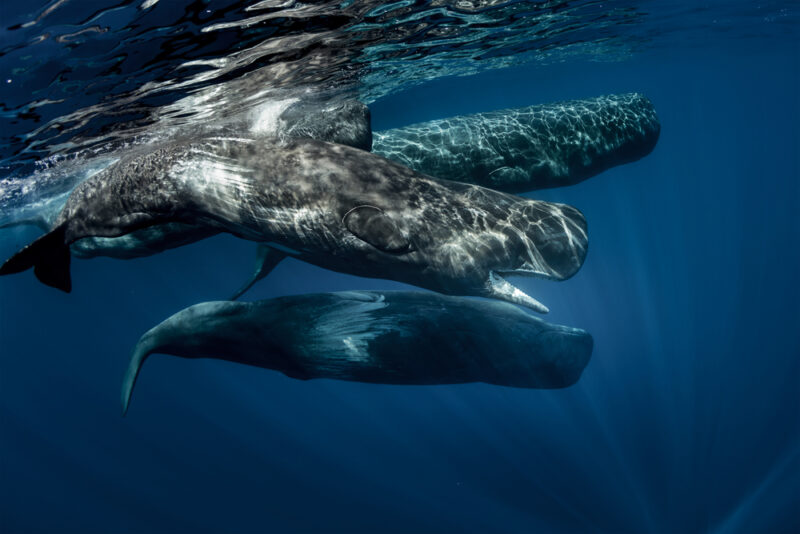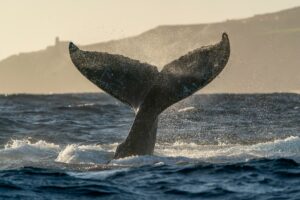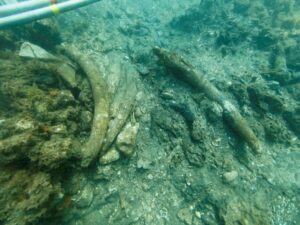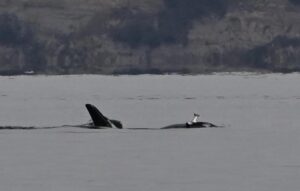Very few ocean creatures can survive an orca attack, but it seems that sperm whales have discovered a new and spectacularly dirty way to defeat them. They use their poo.
Researchers in Australia discovered the unusual strategy. Sperm whales are also an apex predator, and orcas rarely take them on because of their size. However, on this occasion, a pod of orcas tried to chase down a group of juvenile sperm whales.
“It’s actually pretty adventurous for orcas to try to take on sperm whales,” marine biologist Jennah Tucker told ABC News. “They’re punching above their weight.”
Tucker saw the attack unfold from a nearby tour boat. As the orcas pursued four sperm whales for over an hour, the whales — seemingly exhausted — banded together.
“They were sort of poking their heads out of the water and letting out these huge heaving breaths,” said Tucker.
If orcas do attack sperm whales, they usually make a beeline for mothers and calves. The baby whales are a much easier target. Here, one of the juvenile sperm whales was much smaller than the rest.
The sperm whales grouped together in a rosette formation, with the smallest whale in the middle. The other whales kept their heads in the center of the huddle, tails pointing outward.
The orcas tried to get at the small whale several times, but the whales’ defensive formation held. As the orcas continued with their attack, a large dark bubble rose to the surface from the huddle, Tucker explained.
At first, she thought it was blood, but the dark reddish liquid was actually excrement. The sperm whales squid-heavy diet turns their feces that color, so it is easy to mistake for blood.
Incredibly effective
Scientists knew sperm whales used “defensive defecation” but had never witnessed it during an orca encounter. The biggest sperm whale sent a jet of liquified poo toward the orcas. Then the sperm whales thrashed their tails around, spreading the liquid filth through the water.
The cloud of diarrhea was incredibly effective. One orca ended up covered in feces and quickly “peeled away.” A second orca attempted to break up the rosette formation but suffered the same fate when the largest sperm whale emptied its bowels again. The remaining orcas swam off at this point, leaving the sperm whales alone.






